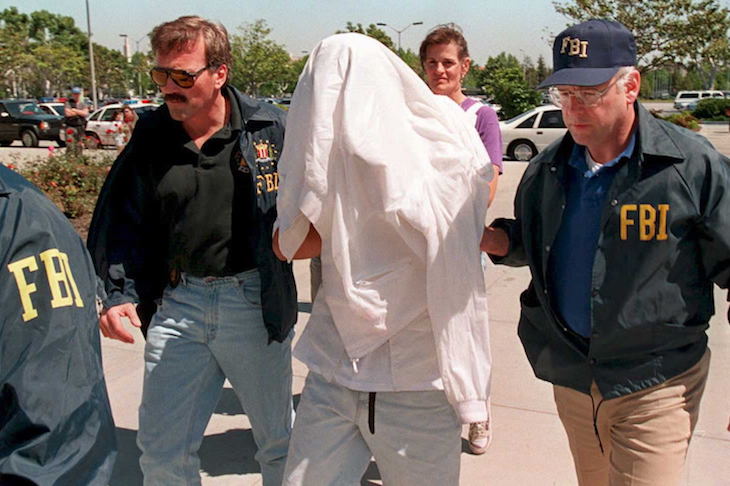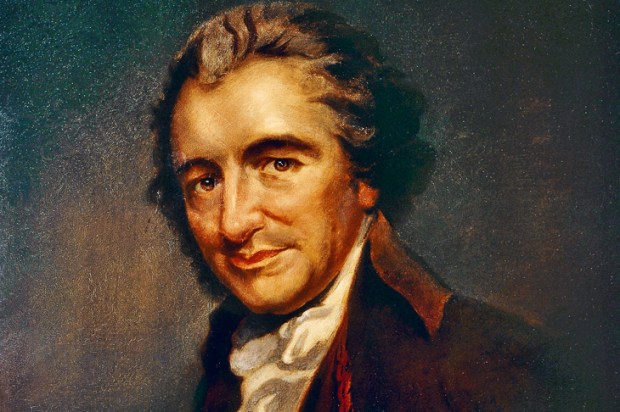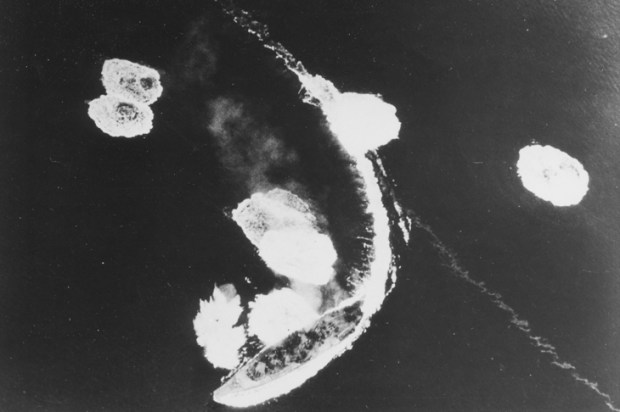‘Keep my name out of it’, was the fairly standard reply when Matthew Sweet started researching the story of the GIs who deserted from Vietnam. People’s concern, it turned out, however, was not about being associated just with desertion, but with a more complex story of duplicity, abuse and insanity.
Over time, the American Deserters Committee (ADC), the welfare group established to support the deserters in neutral Sweden, developed into a series of increasingly militant organisations. These were then infiltrated by the CIA. Sweet tracks the changing nature of desertion ‘from an individual act of conscience or cowardice to a political step that GIs could take together’.
But as he tries to unravel the role of the CIA and chart the changing beliefs, aims and acts of the deserters, their supporters and leaders over the following decades, his book morphs into something more nebulous. ‘Often, while writing this story, I felt as if I were recording a series of dreams,’ Sweet admits, before reporting a confession of confusion by one of his interviewees, Michael Vale, a former leader of the ADC. ‘Matthew, to tell you the truth,’ says Vale, ‘what exactly and specifically this book of yours is about still eludes my grasp.’
To write ‘exactly and specifically’ is a tall order when telling a story about people motivated by paranoia and delusion as much as politics and ideology. The CIA’s aptly named ‘Operation Chaos’ was launched as a counter-subversion project to gather intelligence and break up the ADC’s offshoots as they spread internationally, or at least silence them by letting them know they were under surveillance. Unfortunately, this effectively fed the activists’ paranoia and sustained their conspiracy theories.
By the end of the book, the Swedish prime minister Olof Palme has been assassinated; a prime suspect has been murdered; the American successor of the ADC has developed into a global private intelligence agency; and its leader, the extraordinarily unstable Lyndon LaRouche, has been pilloried on The Simpsons and Saturday Night Live for believing that Queen Elizabeth II controls the world’s drugs markets. What started off as a small anti-war movement had evolved, without intelligent design, into an independent, international fascist front, advocating, among other things, increasing weaponry in space.
Attempting to steer a navigable path through this chaotic history, Sweet has written in a Quest for Corvo style, making appearances throughout as he chases up leads. This allows for a light touch as he reports on meeting Vale, ‘his face as cracked as a late period Walter Mathau’; decries the ‘sadly inappropriate name’ of Eleanor Hug; or interviews ‘a neatly dressed octogenarian with a Peter Lorre giggle’. In fact the book is full of neat lines. Clandestine leaflets produced to guide men through the system are ‘Baedekers of desertion’; Stockholm is ‘the Casablanca of the Cold War’; and anti-imperialist youths march through Sofia ‘looking optimistically into a headwind’.
But Sweet’s tone doesn’t always hit the mark. The wife of a deserter is described as ‘warm, intelligent, a responsible adult’, not a comment Sweet felt compelled to make about any of the men. There are also numerous asides to illustrate the difficulties involved in tracing this story, ranging from Scandinavian myths and Sherlock Holmes to the Victorian Crystal Palace dinosaurs. In a story as complex as this, such diversions are not always helpful.
Yet this is a serious book, exploring some little-known history. In this age of fake news, which can so easily solidify into fake history, it is important that such stories are put on record, and we are indebted to Sweet for the extent of his research.
The political progeny of the ADC took various different names and forms. Some people associated with them died in difficult circumstances; some persist with their delusions to this day. For a while LaRouche was delighted to have engaged with the Reagan administration, and repeatedly stood for president. Later he was convicted of fraud and given a 15-year sentence.
Others involved eventually stepped away and rebuilt their lives. Cliff Gaddy, who deserted from a US Army Security Agency base in 1970, and may or may not have been a CIA plant all along, left Sweden just after the assassination of Palme, and joined the Washington think-tank the Brookings Institute. He later co-wrote an influential book about Vladimir Putin with the Anglo-American foreign affairs specialist Fiona Hill, named last year as Trump’s chief strategist on Russia.
‘What had any of it meant?’ Sweet asks, before considering whether, having become ‘enmeshed in the events of this book’, he himself is complicit in some way. This is a history filled with paranoid people loyal ‘to causes that were mad, meaningless and immoral’. Yet Operation Chaos also highlights the potential reach of charismatic, manipulative leaders who, even when they have a preference for fantasy over reality, can still attract huge support, divert state resources, and influence the international political agenda.
Got something to add? Join the discussion and comment below.
Get 10 issues for just $10
Subscribe to The Spectator Australia today for the next 10 magazine issues, plus full online access, for just $10.
You might disagree with half of it, but you’ll enjoy reading all of it. Try your first month for free, then just $2 a week for the remainder of your first year.














Comments
Don't miss out
Join the conversation with other Spectator Australia readers. Subscribe to leave a comment.
SUBSCRIBEAlready a subscriber? Log in